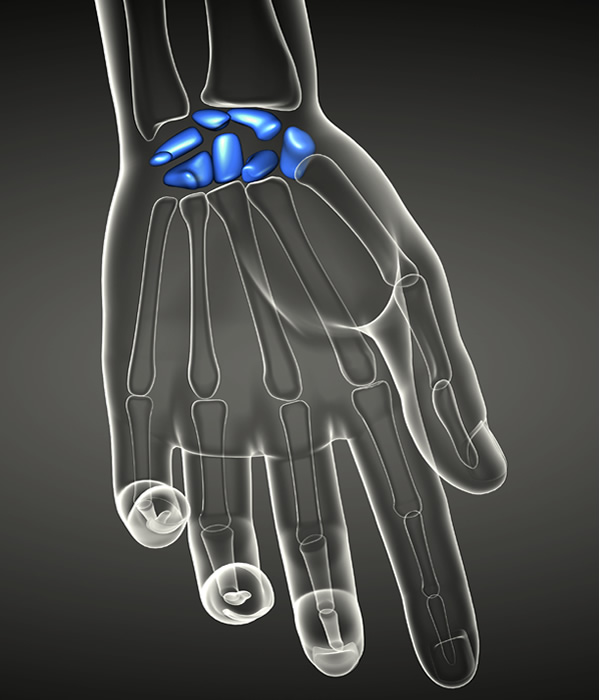Carpal Tunnel Syndrome is named after the eight carpal bones in the wrist that form a narrow “tunnel” that allows the median nerve to supply the hand with innervation (To supply an organ or a body part with nerves.). This tunnel can be compromised by an acute or chronic injury to the wrist that affects the positioning of the carpals and causes compression on the median nerve. In most instances of clinical carpal tunnel syndrome, however, a secondary compression of these nerves due to alignment issues in the neck or shoulder turns a minor irritation into the numbness, swelling, loss of hand strength and shooting pain carpal tunnel syndrome patients experience.
A number of factors can contribute to carpal tunnel syndrome, including the anatomy of your wrist, certain underlying health problems and possibly patterns of hand use.



